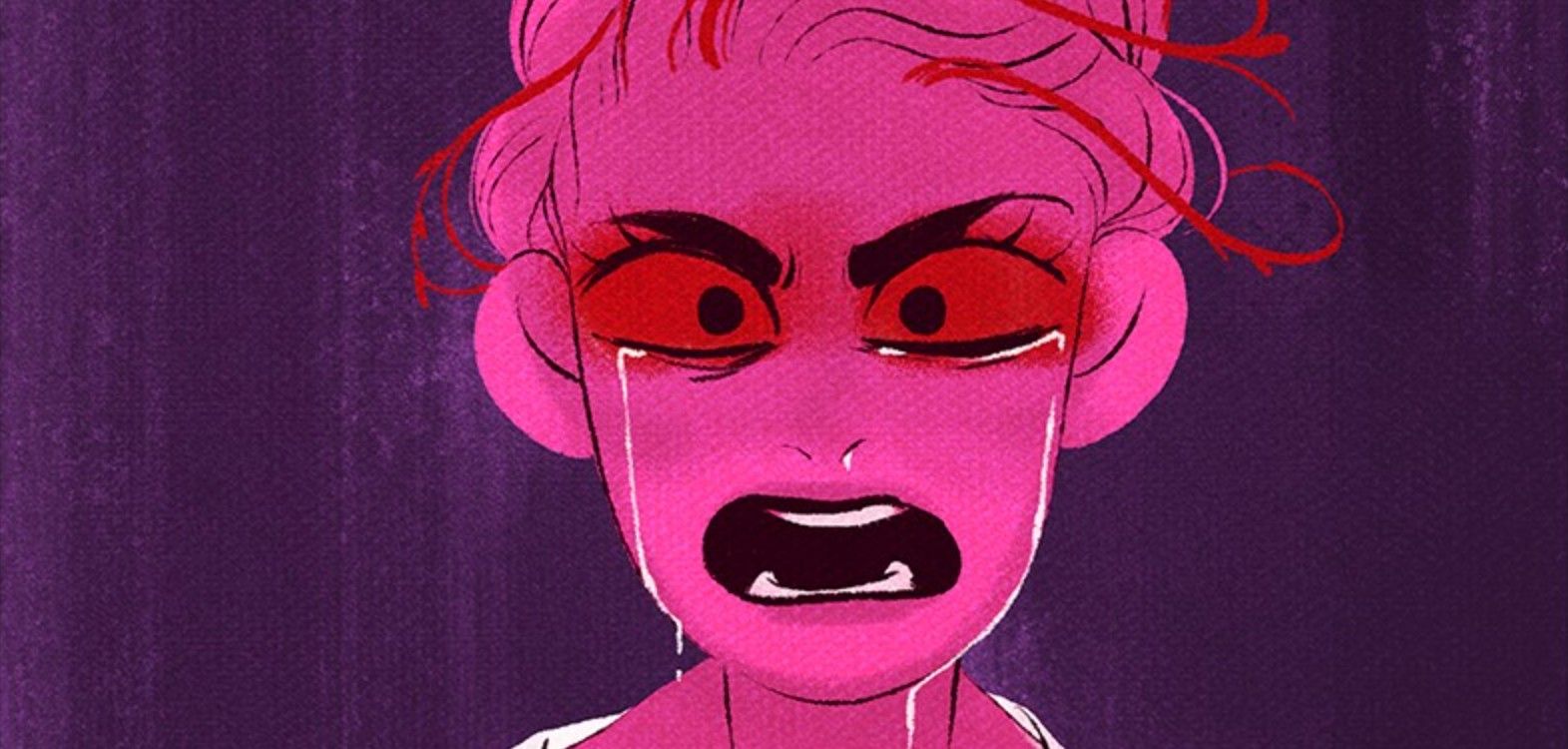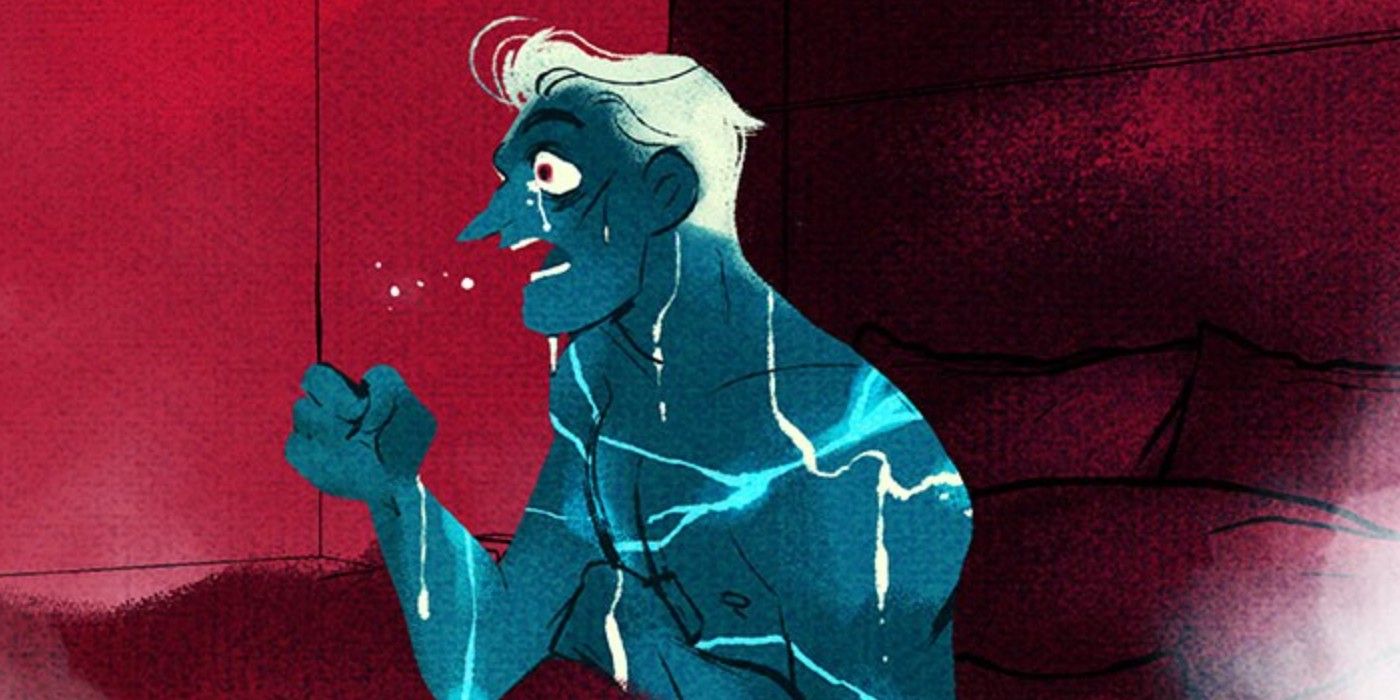WARNING: The following contains mentions of rape, abuse and sexual harassment, as well as spoilers for Lore Olympus, by Rachel Smythe, available now on Webtoons.
Lore Olympus has been one of the biggest comics on Webtoons thanks to creator Rachel Smythe's reimagining of Greek myths. Along with the contemporary take on the Underworld and Mount Olympus, Smythe re-examines the original stories in a way that addresses the more problematic behaviors and actions of the gods, like rape, harassment and abuse.
Greek myths have been reinvented on multiple occasions for younger audiences, as seen in the Percy Jackson series and Disney's Hercules; however, these adaptations often erase the most egregious behaviors of the gods. Meanwhile, adaptations of these myths for older audiences often treat the victims of the gods as trophies, see Helen in Troy, or monsters, see Medusa in Clash of the Titans, and the problematic behaviors of the gods and heroes in these retellings are mainly toned down, so audiences can still see them as complicated protagonists.
While Lore Olympus takes a lot of liberties, this isn't out of the ordinary, since the original myths were passed down through oral traditions; therefore, there is no definitive original story to base the comic off of. However, despite changing some of the dynamics, characterizations and settings, Smythe keeps the essence of the characters, as well as some of their more problematic traits, in tact, but she handles this in a way that does not excuse or glamorize their offenses, making the gods more human, flawed and, for the more despicable characters, disgusting.
For instance, one of the main antagonists in the Webtoon is Apollo. He is a god of many things often celebrated in the past and present, including music, poetry, healing and the sun, so Apollo is mainly seen in a positive light. However, in Lore Olympus, he is far from being a favorable god, raping, blackmailing and harassing Persephone.
While this is far from some of the traditional depictions of Apollo, it is not a mischaracterization of him. In one myth, he pursues the nymph Daphne even though she adamantly does not want to be with him. His harassment gets to a point where Daphne begs her father to turn her into a tree, so Apollo will leave her alone. There are reinterpretations of this myth, but the bare bones of the story are the same. Apollo wants Daphne despite her clear disinterest in him, but he harasses her to the point that she gives up her life.
It's a tragedy from Daphne's perspective, and Apollo is her villain, similar to the role he plays in Lore Olympus. Smythe acknowledges Apollo's behavior in the Webtoon, instead of choosing to ignore or minimize it to appeal to a wider audience. In doing so, she not only addresses the problematic aspects of these myths, but she also keeps the focus of the story on the survivors.
Persephone is undoubtedly the protagonist of Lore Olympus, and with the comic mainly from her point of view, readers see the trauma Apollo puts her through. Fans instantly feel empathy for Persephone as they watch her cope with her pain while also confronting her abuser, showing readers different tactics a survivor can take in order to get to a better head space. These include, but are not limited to, seeing a therapist, confiding in friends and focusing one's energy on themselves instead of on their tormentors. The comic also shows that survivors can live full lives and maintain relationships, giving hope to Persephone and anyone who's remotely been in her shoes.
Furthermore, the comic uses Persephone's trauma as a jumping off point for an important discussion. Instead of having Apollo torment her for shock factor, his actions serve a genuine purpose by calling out people, like him, who think they can get a free pass because of their "upstanding" reputations or their family ties. Rape and harassment are never excusable, even for the Gods, and Smythe makes sure her readers know this.
Along with rape and harassment, Lore Olympus tackles issues like abuse, as seen with Minthe and Hades. Their relationship is toxic from the start, but as Hades starts to show interest in someone else and expresses a desire for a more stable, healthy life, Minthe emotionally abuses him. While this is not overtly tied to a classical myth, like the others, this story is important representation because it shows that men can be victims of domestic abuse and that abuse is not always physical. Minthe relies on tactics that pry on Hades' insecurities and past trauma, and it is in no way acceptable.
Hades and Minthe's relationship also shows how one can break the cycle of abuse. It is more than just calling it quits. For Hades to be free, he must acknowledge what he deserves and how Minthe has hurt him, as well as establishing clear boundaries. He also needs the support of those who truly care about him, so he does not have to feel so alone. Thankfully, Hecate is there for him, and she acknowledges his pain, instead of forcing him to get over it and move on.
Lore Olympus is full of complex, complicated characters, despite most of them being hods. This is why the Webtoon is such a success. No one is perfect or free of fault, so these characters are more engaging and relatable. As for the characters who are monsters posing as Gods, Smythe shows that anyone, regardless of status, should be held accountable. Furthermore, her modern classic keeps the focus on the survivors, giving readers heroes and role models that have a bright future ahead of them, regardless the trauma they have experienced.
If you are a U.S.-based victim of sexual assault or misconduct in need of help, contact RAINN at 800-656-4673 to be connected with a trained staff member from a sexual assault service provider in your area. If you are based outside the U.S., click here for a list of international sexual assault resources.



